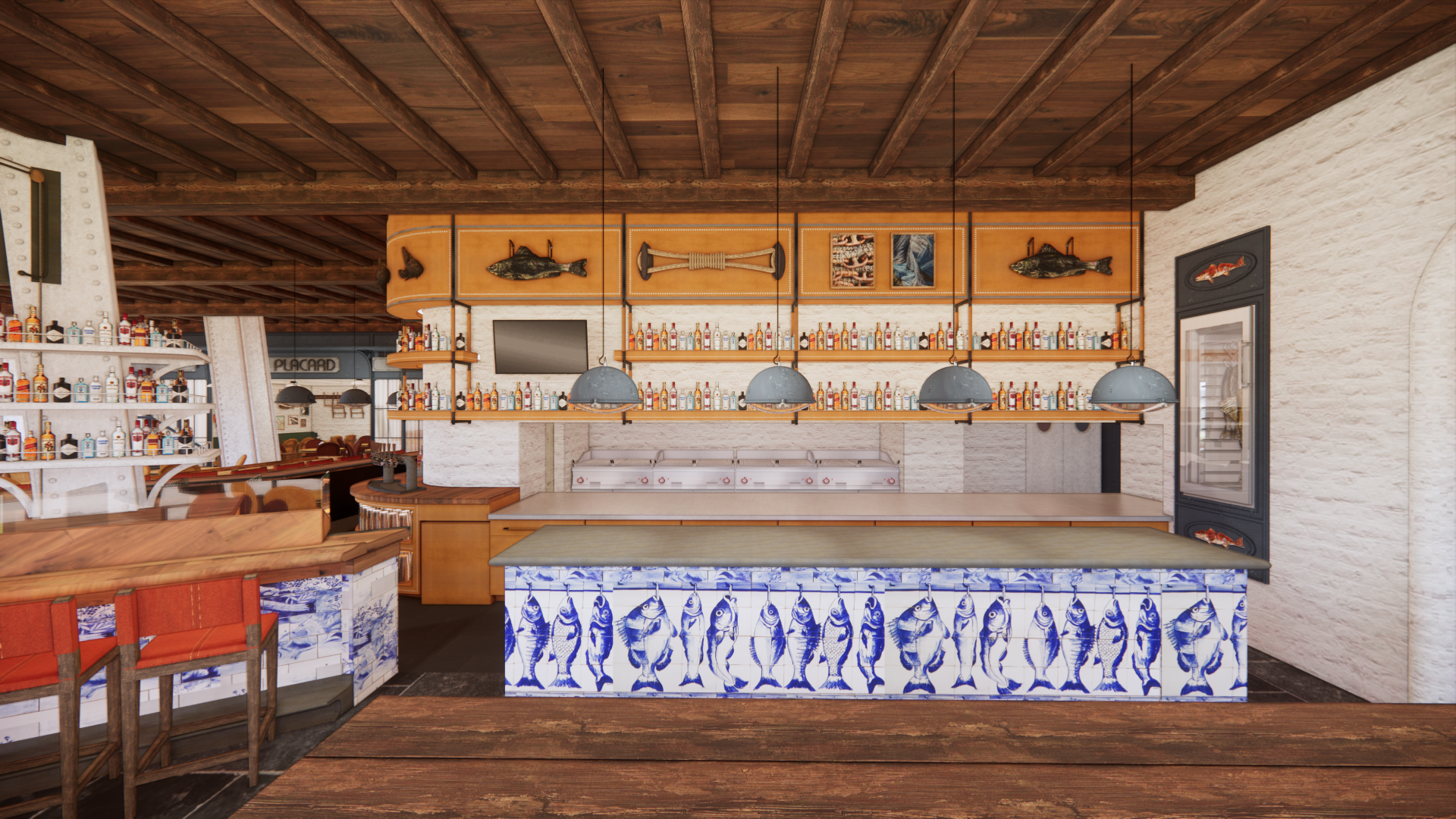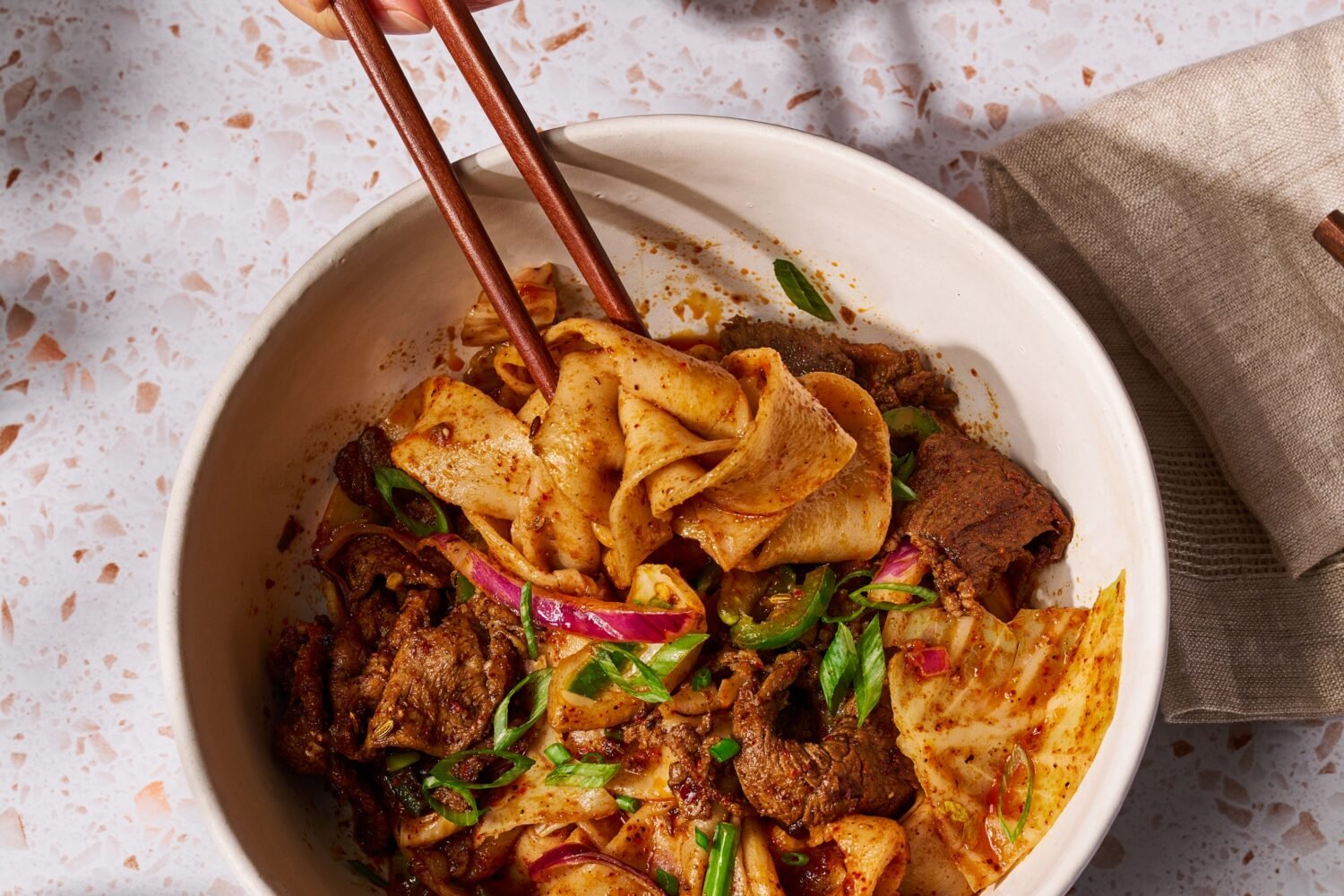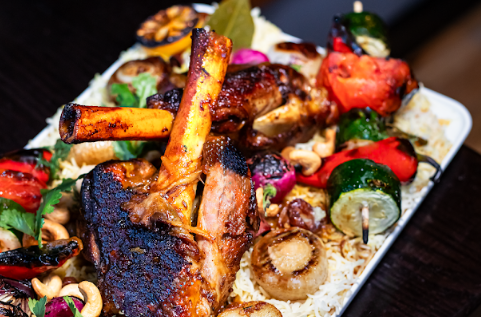The restaurant group behind some of DC’s oldest dining institutions—Clyde’s, the Old Ebbitt Grill—is hopping on some of the hottest seafood trends with a rustic nautical eatery, slated to open in the Union Market District on Monday, November 18.
Cordelia Fishbar has a Spanish-inspired menu, with whole fish grilled over charcoal, Iberico pork, and tinned fish conservas gussied up with fresh ingredients, pintxo-style. There’s also an extensive raw bar, a selection of caviars served with potato crisps, and dry-aged fish crudos. The Northeast DC restaurant, set to open November 18, is a departure from the restaurant group’s more staid approach at Clyde’s and the Old Ebbitt Grill.
John McDonnell, president of Clyde’s Restaurant Group, says his team is excited to try something more contemporary, in a more modest space.
“When you look at the Clyde’s restaurants, these are balanced American cuisine menus that are geared toward high volume and celebrate nostalgia a little bit,” McDonnell says. “This is a smaller place where we’re really taking our best shot at doing a great seafood restaurant.”
Between them, the restaurant’s founding staffers have plenty of experience at restaurants that don’t much resemble Clyde’s. There’s vice president of culinary operations Stephen Lyons, who worked at the Inn at Little Washington; executive chef Rene Caceres, an alum of the Salt Line and Fiola Mare; and general manager Sonya Znati, formerly of Bar Spero.
Cordelia’s menu kicks off with high-quality tinned fish from the Iberian peninsula: you can pair yellowfin tuna ventresca with castelvetrano olives and capers; or grilled Asturian sardines with whipped butter and peperonata.
The most notable selection from the crudo bar is made with Ora King salmon, dry aged in a special locker for seven days, then served with grapefruit, celery, and salmon roe. Fish aging—a technique often practiced in the best sushi restaurants—accomplishes something akin to the dry aging process for a cut of beef.
“We’ve never used fish-aging lockers before, and you don’t see it a ton,” McDonnell says. “It really goes up a couple notches when you talk about the sumptuous texture, the intensity of the flavor, and the umami.”
Much of the menu at Cordelia will be grilled over a blend of oak, cherry, and apple charcoal from WoodWirks in Northern Virginia, or baked in charcoal ovens. That includes coal-roasted oysters with fermented-pork butter; ember-roasted beets and cabbages; and grilled fish like Spanish turbot, wild black bass, sea bream, and that dry-aged salmon, dressed with sauces like chermoula and brown butter.
True to Clyde’s form though, the menu is still lengthy and accommodating compared to a little Basque Country bistro’s offerings. Not into oysters, grilled sardines, and dry-aged fish? There’s a lemon-herb half chicken, a New York strip, and a selection of veggie sides and salads.
Cordelia, named after the daughter of a sea god in Irish mythology, has a stitched leather bar-back, blown-glass light fixtures, and blue-and-white Delft tiles that call to mind European port cities. Karen Herold, the designer, is still looking for artifacts and art for the restaurant in towns around the Chesapeake Bay.
“It won’t look like any Clyde’s,” McDonnell says, “but we want design that’s kind of timeless, and we want it to look a little lived-in when we open up.”
550 Morse St., NE
















